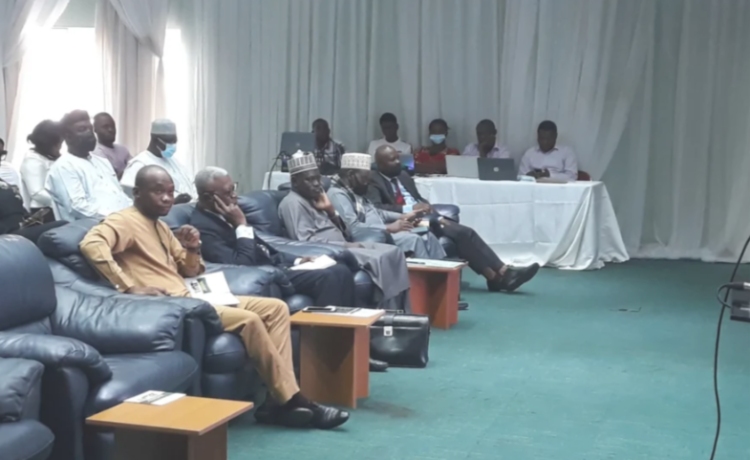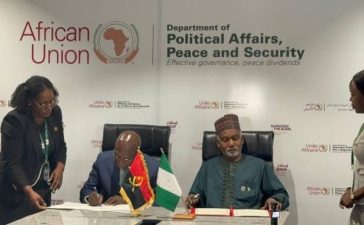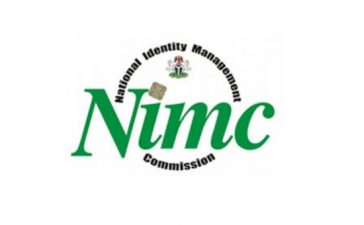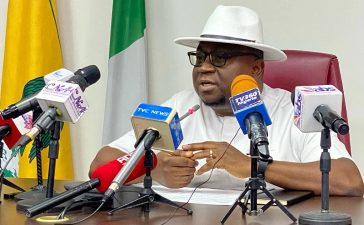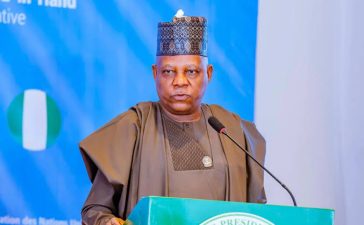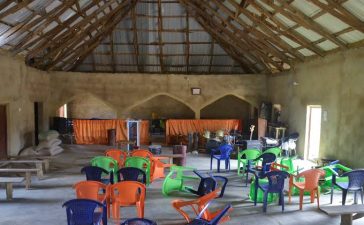As Nigeria continues to grapple with its ongoing energy crisis, a group of industry experts has come together to discuss potential solutions to some of the nation’s most pressing energy challenges.
The experts, who gathered at a stakeholder meeting in Lagos, presented critical steps to address the country’s persistent energy issues and leverage emerging opportunities in the energy market.
The meeting, titled “Digitization: A Catalyst for Energy Transformation in Nigeria,” was led by Dr. Tolu Aderemi, a Partner in charge of Perchstone & Graeys law firm’s Energy Group, and focused on the integration of technology into Nigeria’s energy infrastructure as a way to combat inefficiencies and security challenges in the sector.
Dr. Aderemi highlighted the significant opportunity that Nigeria has in the emerging global liquefied natural gas (LNG) market, particularly in light of the ongoing Ukraine-Russian conflict.
With the European Union set to cut off imports of LNG from Russia by 2030, Nigeria could step up to fill the gap. However, Dr. Aderemi noted that Nigeria has not fully capitalized on this opportunity, despite having earned approximately $21 billion over the past 20 years from its LNG sector.
“Nigeria currently supplies only four percent of the EU’s LNG market,” Aderemi pointed out. “We must enhance this share, or we risk losing out on a critical market.” He stressed that tackling oil theft and improving infrastructure to prevent vandalism are crucial to achieving this goal.
Former Minister of State for Petroleum Resources, Prof. Ibe Kachikwu, discussed the government’s ongoing efforts to combat oil theft and highlighted the importance of technology in improving production capabilities.
He expressed optimism that with the right preventive technologies, Nigeria could reach its ambitious target of producing 2 million barrels per day, a goal set by the current administration under President Tinubu.
Dr. Yusuf Ali, a Commissioner at the Nigerian Electricity Regulatory Commission (NERC), also addressed issues within the electricity sector, citing the introduction of the Electricity Act and other regulations designed to enhance security and efficiency.
“Reducing theft within the electricity sector is a priority, but we must also integrate technology to alleviate the load on the national grid,” he said.
Technology was a recurring theme throughout the meeting, with several speakers emphasizing its potential to address Nigeria’s energy inefficiencies.
Ugo Obi, Partner and head of the ICT Practice Group at Perchstone & Graeys, highlighted the need for real-time monitoring and predictive maintenance, citing AI-driven fault detection and live grid simulations as essential tools for improving energy infrastructure.
Emmanuel Haruna, Managing Director of Lightspeed Energy Systems (UK), focused on the transformative potential of Digital Twin (DT) technology, which creates real-time virtual replicas of physical energy grids. This technology, Haruna noted, could enhance the resilience and efficiency of Nigeria’s national grid.
Ms. Chantelle K. O. Abdul, Managing Director/CEO of Mojec International Limited, a leading meter manufacturing company, called for diversification in energy sources, including a shift toward renewable energy.
“To achieve optimal use of the national electricity grid, Nigeria must seriously consider alternative fuel sources,” she said. “A cleaner, greener energy future is essential.”
Despite the existence of several laws governing Nigeria’s energy sector, the experts noted that enforcement remains a significant challenge. Adediran Adeyemi, a Partner at Andersen Tax, stressed that while Nigeria has the necessary legal frameworks in place, the effectiveness of their enforcement must be prioritized.
In line with this, Oktay Curebal, CEO of Fifty2, a leading Blockchain and AI firm in the UAE, spoke about the potential for partnerships between Nigerian firms and international technology providers. According to Curebal, adopting advanced technologies such as blockchain, AI, and IoT could help Nigeria address its energy sector challenges while improving transparency, resilience, and efficiency.
“We have the opportunity to bring cutting-edge technology to Nigeria’s energy sector through strategic partnerships,” Curebal said. “This collaboration can lead to innovative solutions that address Nigeria’s unique challenges.”
The panelists concluded by agreeing on the necessity of adopting advanced technological solutions to combat theft, improve infrastructure, and increase energy efficiency in Nigeria. There was a unanimous call for greater accountability and regulatory compliance in the energy sector.
As Nigeria seeks to overcome its complex energy crisis, the experts emphasized that adopting these technological innovations, coupled with effective enforcement of existing laws, is crucial to unlocking the full potential of the country’s vast energy resources.
The discussion also underscored the need for a multi-faceted approach that combines digitalization, legal reform, and diversification of energy sources to create a more sustainable and efficient energy future for Nigeria

